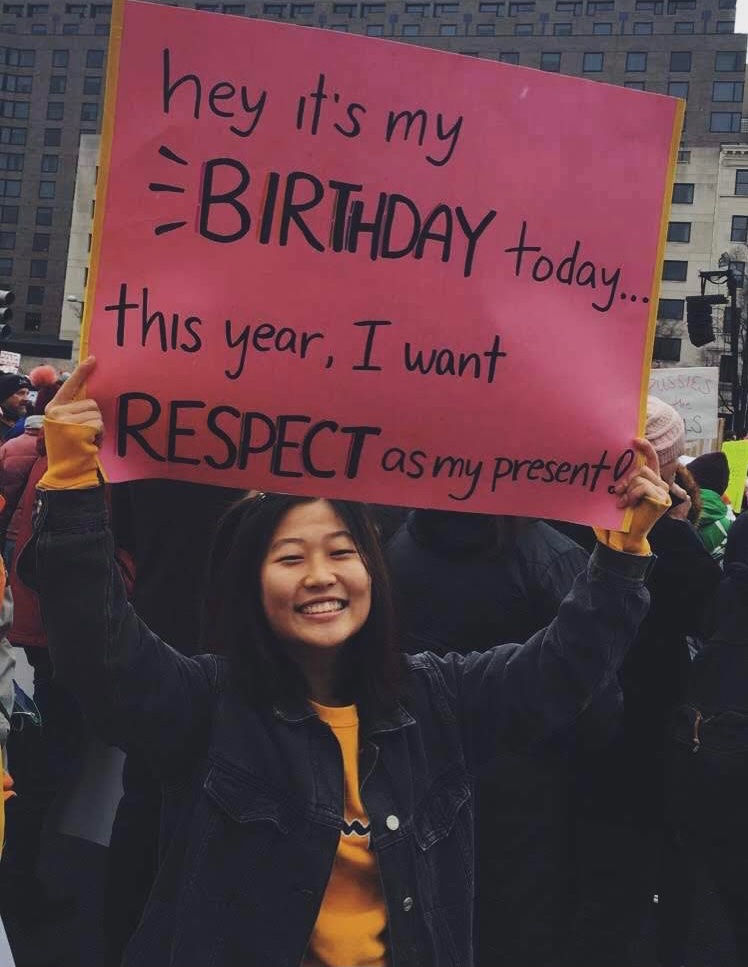Growing Pains- Debby ‘21 of Lexington, KY
- Jonathan Lee

- Jun 7, 2021
- 3 min read

My time before Episcopal consisted of “playing a role”. I lived in a small town of 5,000 and it was 95% white—meaning that I found myself subjected to a barrage of stereotypes served up on TV or in movies, ranging from a ‘quiet nerd’ to ‘socially inept’. Though trivial, I found myself internalizing them all throughout elementary school as I began to think that my worth derived from the fact that I was a know-it-all, that I had no friends, that I was quiet, seen as weird, and poked fun at by my peers. In that way, I accepted that being the person that others perceived me to be was my job.
Coming to Episcopal was an opportunity to free me from these limited expectations. I remember freshman year, in which my goal was to not only challenge the notion within my mind that I was supposed to be quiet but to challenge the world’s idea that I wasn’t allowed to take up space as myself. I laughed a little harder, I yelled in the dining hall and over-exaggerated my actions. If I was louder, I wouldn’t be Asian, I wouldn’t be something silenced or cast aside.
But the burst of confidence and energy didn’t last long as a gradual accumulation of microaggressions built up. It began with something as small as people not saying hello to me in the hallways when I said hello. I grew self-conscious of the color of my skin and the price tags and brands that labeled my clothes and how they differed from those who didn’t greet me in return. Maybe that was why? I grew aware of the fact that people did not want to associate with me in public spaces, and I began to internalize a feeling of inferiority. I chose not to talk to anyone first around campus anymore. Instead, I allowed people to decide whether or not they wanted to associate my name with theirs. I was not equal to anyone in my mind.
This hyper-awareness of others’ perceptions paralyzed me both inside and outside the classroom. If I spoke up in class, I was further encasing myself within the typical “Asian” stereotype. But the same stood for me if I remained quiet. If I allowed myself to be enthusiastic, energetic, or overly engaged, I was nerdy. But if I wasn’t enthusiastic enough, I was anti-social. The paradox I had created was choking my voice out of existence. What was I supposed to be, if there was no gray space in between the black and white definitives?
As time passed, I found that this cage of worthlessness accompanied me to justify the various experiences that I faced, to myself. I convinced myself that I was allowed to be taken advantage of as people came to me for help in a private setting but refused to look at me in passing outside. I was allowed to be stared at, to stand out in social settings, to be excluded from the EHS community. I was allowed to be in a rooming situation that prevented me from getting more than four hours of sleep a day for a year because I didn’t deserve the right to sleep or to space to call my own. It made sense as to why I wandered around the dorm at 2 AM in the mornings and ended up asleep on the common room couch—I was not equal to anyone. I didn’t deserve anything. No self-advocacy could happen without my voice, which I found that I no longer had for myself.
But Episcopal also exposed me to a world of activism. I was able to connect with other Asian students through monthly Affinity gatherings that provided me, role models, to look up to. I saw people like me actively existing as themselves without fear. I was also able to find that I had a passion for helping people and for advocacy as I attended diversity conferences and was exposed to new ideas of equity, inclusion, race, gender, class, and more.
My new passion allowed me to begin stepping beyond the internalized projections of who I thought I was, who I believed Debby needed to be and began to speak my own truth. Though I haven’t arrived at a clear destination of truly knowing who I am, I know that I’m headed in the right direction. I know that I want to help people, to speak up for the marginalized, to fight against injustice.
I’ve faced many language barriers in my life: environments, people, and situations that act as obstacles to an acceptance of who I am as a low-income Asian student. Episcopal had its fair share. But I’m growing into the person I am, the person who I want to be because of them—and in that way, I’m grateful for them.
Debby ‘21
American University




👏🏽👏🏽👏🏽 Well said, Debby. :)